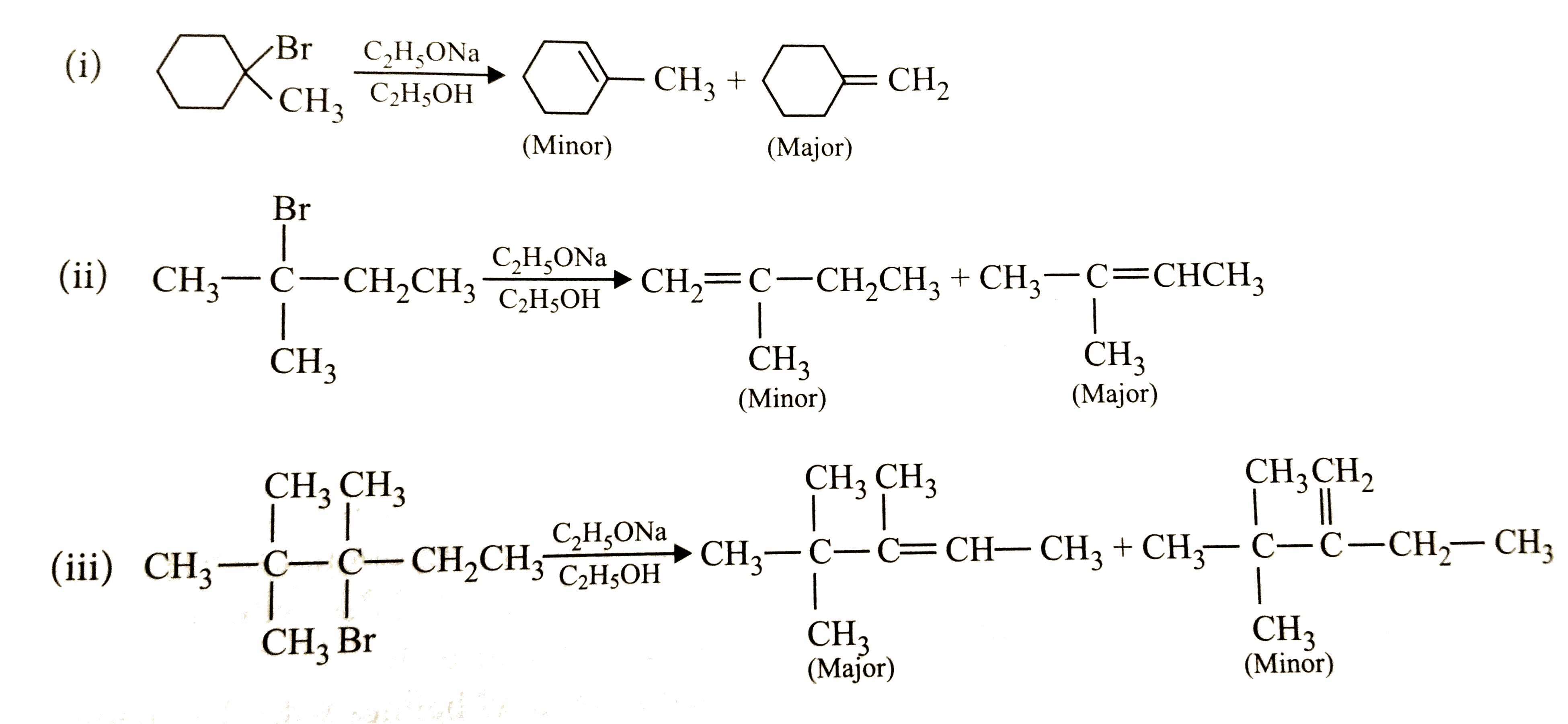Dehydrohalogenation of an alkyl halide is:
A
Nucleophilic substitution reaction
B
Elimination reaction
C
Both nucleophilic substitution and elimination reaction
D
Rearrangement
Video Solution
Text Solution
The correct Answer is:B
Dehydrohalogenation of an alkyl halide in presence of alcoholic potash is an example of elimination reaction.
R−CH2CH2−Cl+KOHalc.Δ−−→RCH=CH2+KCl+H2O
|
Topper's Solved these Questions
- GENERAL ORGANIC CHEMISTRYBOOK - ERRORLESS CHAPTER - GENERAL ORGANIC CHEMISTRYEXERCISE - Structural and stereo isomerism
140 Videos
- GENERAL ORGANIC CHEMISTRYBOOK - ERRORLESS CHAPTER - GENERAL ORGANIC CHEMISTRYEXERCISE - Classification and nomenclature of organic compounds
117 Videos
- GENERAL ORGANIC CHEMISTRYBOOK - ERRORLESS CHAPTER - GENERAL ORGANIC CHEMISTRYEXERCISE - Dipole moment, resonance and reaction intermediates
73 Videos
- GASEOUS STATE BOOK - ERRORLESS CHAPTER - GASEOUS STATE EXERCISE - JEE SECTION JEE (Advanced) 2018 Numeric answer type question
1 Videos
- HALOGEN CONTAINING COMPOUNDBOOK - ERRORLESS CHAPTER - HALOGEN CONTAINING COMPOUNDEXERCISE - Critical Thinking (Jee (Advanced) 2018)
1 Videos
Similar Questions
Knowledge Check
Dehydrohalogenation of an alkyl halide by an E2 elimination is
Aa syn eliminationBan anti eliminationCeither syn or anti elimination depending upon substrateDneither syn or nor anti eliminationDehydrohalogenation of alkyl halide is
AAddition reactionBElimination reactionCRearrangement reactionDSubstitution reactionDehydrohalogenation of alkyl halides to form alkenes is promoted (or catalyzed) by
Aa baseBan acidCboth and acid as well as a baseDneither an acid nor a base
The ease of dehydrohalogenation of alkyl halide with alcoholic KOH is
View SolutionThe ease of dehydrohalogenation of alkyl halide with alcoholic KOH is-
View SolutionThe ease of dehydrohalogenation of alkyl halide with alcoholic KOH is-
View SolutionThe ease of dehydrohalogenation of alkyl halide with alcoholic KOH is-
View SolutionDehydrohalogenation of alkyl halides lead to the formation of highly alkul alkene. This generalization is called.
View Solution

